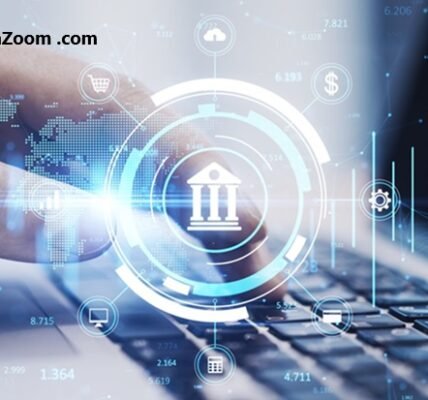In the age of information, data has become one of the most valuable resources for businesses. With the rise of digital platforms, mobile devices, and the internet of things (IoT), the amount of data generated every second is staggering. This vast ocean of information, known as Big Data, offers a unique opportunity for businesses to understand their customers better and deliver highly personalized experiences. This article explores the role of Big Data in personalizing customer experiences, the technologies involved, and the benefits it brings to both businesses and consumers.
Understanding Big Data
Big Data refers to the massive volume of structured and unstructured data that is too large to be processed by traditional data management tools. It is characterized by the three V’s: Volume, Velocity, and Variety.
- Volume: The sheer amount of data generated every day is immense. Social media interactions, online transactions, sensor data from IoT devices, and more contribute to the ever-growing pool of information.
- Velocity: Data is generated at a rapid pace. For example, social media platforms like Facebook and Twitter produce millions of posts every minute. Real-time data processing is crucial to make sense of this continuous flow.
- Variety: Big Data comes in various forms, including text, images, videos, and sensor data. It also includes structured data (e.g., databases) and unstructured data (e.g., emails, social media posts).
The Importance of Personalization in Customer Experiences
Personalization has become a key differentiator for businesses in today’s competitive market. Customers expect tailored experiences that meet their individual preferences, needs, and behaviors. According to a study by Accenture, 91% of consumers are more likely to shop with brands that provide relevant offers and recommendations.
Personalization goes beyond addressing customers by their first names in emails. It involves understanding their preferences, predicting their needs, and delivering relevant content, products, and services at the right time. Big Data plays a crucial role in making this level of personalization possible.
How Big Data Powers Personalization
Big Data provides the foundation for creating personalized customer experiences by offering deep insights into customer behavior, preferences, and needs. Here are some key ways Big Data enables personalization:
- Customer Segmentation:
- Big Data allows businesses to segment their customer base into smaller, more precise groups based on various attributes such as demographics, purchase history, browsing behavior, and social media interactions. These segments can then be targeted with tailored marketing campaigns that resonate with their specific needs and interests.
- Predictive Analytics:
- By analyzing historical data, businesses can predict future customer behaviors and preferences. Predictive analytics models can identify patterns and trends, allowing companies to anticipate what customers are likely to purchase next or when they might need a particular service. This enables proactive engagement, such as sending personalized recommendations or reminders.
- Real-Time Personalization:
- With the help of Big Data and advanced analytics, businesses can deliver personalized experiences in real-time. For example, an e-commerce website can display product recommendations based on a customer’s browsing history and current session behavior. Similarly, streaming services like Netflix use real-time data to suggest shows and movies that align with a user’s viewing habits.
- Enhanced Customer Service:
- Big Data empowers customer service teams to provide personalized support by giving them access to comprehensive customer profiles. When a customer contacts support, agents can quickly access information about previous interactions, purchases, and preferences, allowing them to offer tailored solutions and recommendations.
- Targeted Marketing Campaigns:
- Big Data enables businesses to create highly targeted marketing campaigns by analyzing customer data across multiple channels. Companies can use this information to craft personalized messages, offers, and advertisements that resonate with specific customer segments. For example, an email campaign might be personalized based on a customer’s past purchases or browsing behavior.
- Product Development and Innovation:
- By analyzing customer feedback, reviews, and usage data, businesses can gain insights into what customers like or dislike about their products and services. This information can guide product development and innovation, ensuring that new offerings meet customer needs and preferences.
Technologies Driving Big Data and Personalization
Several technologies are instrumental in harnessing the power of Big Data for personalizing customer experiences:
- Machine Learning and Artificial Intelligence (AI):
- Machine learning algorithms and AI are at the core of Big Data analytics. These technologies can analyze vast amounts of data, identify patterns, and make predictions that drive personalization. For example, AI-powered recommendation engines use machine learning to suggest products, content, or services based on a user’s past behavior.
- Data Analytics Platforms:
- Advanced data analytics platforms like Hadoop, Apache Spark, and cloud-based solutions (e.g., AWS, Google Cloud) provide the tools needed to process, analyze, and visualize Big Data. These platforms enable businesses to extract actionable insights from complex data sets, driving personalized experiences.
- Customer Data Platforms (CDPs):
- CDPs are centralized systems that collect and unify customer data from various sources, including websites, mobile apps, social media, and CRM systems. CDPs create a single customer view, enabling businesses to deliver consistent and personalized experiences across all touchpoints.
- Internet of Things (IoT):
- IoT devices generate a wealth of data that can be used to personalize customer experiences. For example, smart home devices can learn a user’s preferences and adjust settings automatically. Wearable devices can provide personalized health recommendations based on real-time data.
- Natural Language Processing (NLP):
- NLP technology allows businesses to analyze unstructured data such as customer reviews, social media posts, and emails. By understanding the sentiment and context of this data, businesses can tailor their responses and offers to individual customers.
Benefits of Personalizing Customer Experiences with Big Data
Personalizing customer experiences through Big Data offers several benefits for both businesses and customers:
- Increased Customer Satisfaction and Loyalty:
- Personalized experiences make customers feel valued and understood, leading to higher satisfaction levels. When customers receive relevant offers and recommendations, they are more likely to remain loyal to a brand.
- Higher Conversion Rates:
- Personalized marketing campaigns and product recommendations lead to higher conversion rates. Customers are more likely to engage with content that resonates with their interests and needs, resulting in increased sales and revenue.
- Improved Customer Retention:
- Personalization helps businesses retain customers by providing them with experiences that cater to their preferences. When customers feel that a brand understands their needs, they are less likely to switch to a competitor.
- Enhanced Customer Lifetime Value (CLV):
- By delivering personalized experiences, businesses can increase the lifetime value of their customers. Personalization encourages repeat purchases, upselling, and cross-selling, ultimately boosting CLV.
- Competitive Advantage:
- In a crowded market, personalization can be a key differentiator. Businesses that effectively leverage Big Data to create tailored experiences can stand out from competitors and attract more customers.
Challenges in Implementing Big Data Personalization
While the benefits of Big Data-driven personalization are significant, there are also challenges that businesses must address:
- Data Privacy and Security:
- Collecting and analyzing large amounts of customer data raises concerns about privacy and security. Businesses must ensure that they comply with data protection regulations, such as the General Data Protection Regulation (GDPR), and implement robust security measures to protect customer information.
- Data Integration:
- Customer data is often stored in disparate systems, making it challenging to create a unified view. Integrating data from various sources requires advanced technology and expertise, as well as a commitment to breaking down data silos.
- Managing Data Quality:
- The accuracy and quality of data are critical for successful personalization. Incomplete, outdated, or inaccurate data can lead to incorrect insights and ineffective personalization efforts.
- Complexity and Costs:
- Implementing Big Data solutions can be complex and costly, requiring significant investment in technology, infrastructure, and talent. Small and medium-sized businesses may find it challenging to keep up with the demands of Big Data analytics.
The Future of Big Data in Personalization
As technology continues to advance, the role of Big Data in personalizing customer experiences will only grow. Future trends may include:
- Hyper-Personalization:
- Hyper-personalization involves using real-time data and advanced analytics to deliver even more tailored experiences. This could include dynamic pricing, real-time content customization, and personalized customer journeys.
- Predictive Personalization:
- Predictive personalization will leverage AI and machine learning to anticipate customer needs before they arise. For example, businesses could offer products or services based on predicted future behavior, rather than just past interactions.
- Omni-Channel Personalization:
- As customers interact with brands across multiple channels, the ability to deliver consistent and personalized experiences across all touchpoints will become increasingly important. Omni-channel personalization will ensure that customers receive a seamless experience, whether they are shopping online, in-store, or on a mobile device.
- Ethical Personalization:
- As concerns about data privacy grow, businesses will need to focus on ethical personalization. This means being transparent about data collection practices, giving customers control over their data, and using data in ways that respect privacy and build trust.
Conclusion
Big Data has revolutionized the way businesses interact with their customers, making it possible to deliver highly personalized experiences that meet individual needs and preferences. By leveraging advanced analytics, machine learning, and AI, companies can create tailored marketing campaigns, improve customer service, and drive product innovation. However, the successful implementation of Big Data-driven personalization requires careful consideration of data privacy, integration, and quality challenges. As technology continues to evolve, the future of personalization looks promising, with even more opportunities to enhance customer experiences and drive business success.




